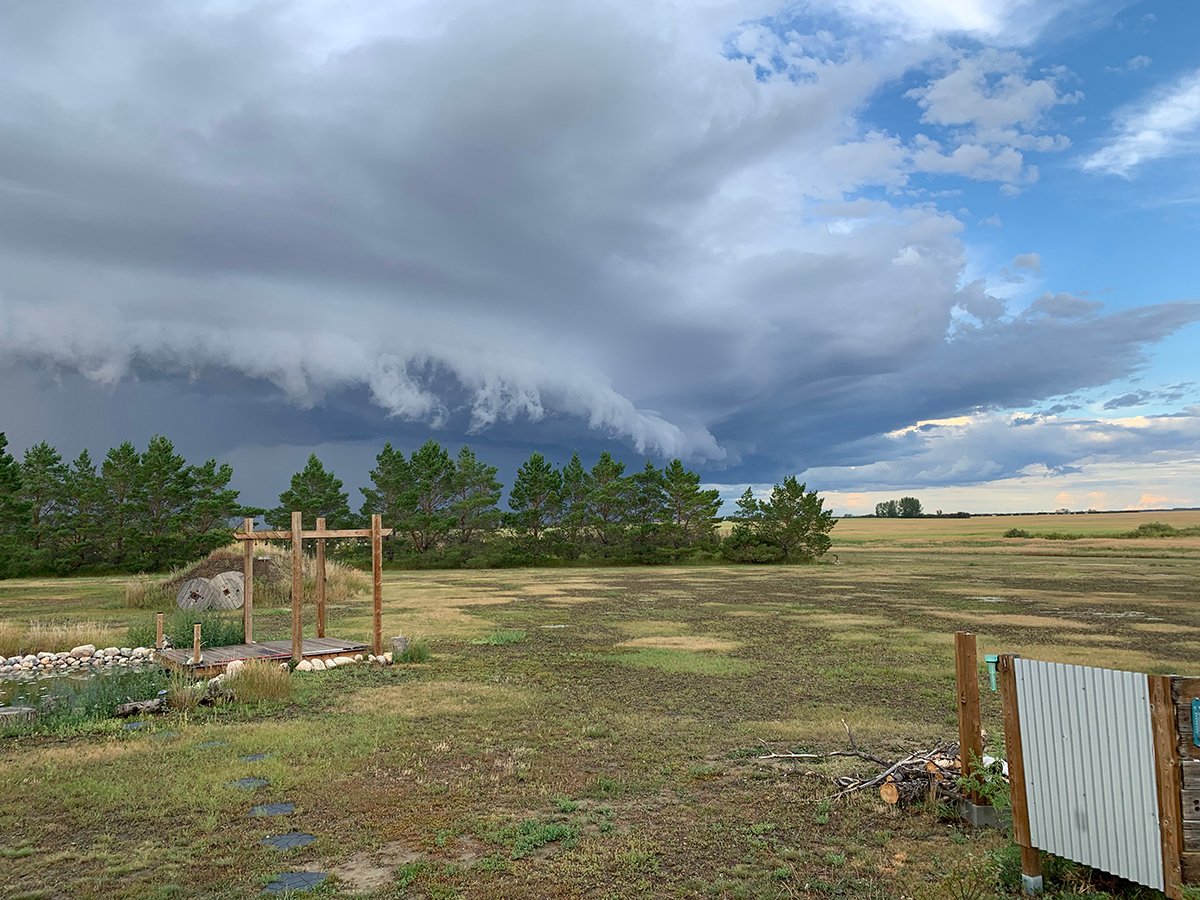A downturn in real estate markets forced two former Canadian farmers to revisit their roots and begin producing food again, this time in Costa Rica.
Jessa York and Allan Shantz raise more than 70 free range chickens and ducks on a 35 acre farm near Tamarindo, as well as growing purple corn for feed and cashews and almonds and mangoes for local markets and recently planting 1,100 neem trees. They also rent out two cabins on their property.
York grew up in Odessa, Sask., competing in barrel racing. Her father was the mayor of Odessa and operated the hotel after farming for many years at Kendal, Sask. She and her first husband ran a 150-cow dairy farm with their three children in Vibank, Sask., where her son is a grain farmer.
Read Also

Storm dynamics and extreme rainfall
Besides moisture, instability and orographic lift, the next biggest factor that contributes to heavy or extreme rainfall is storm dynamics.
Shantz’s family was longtime hog and cattle producers at Kitchener, Ont.
“At a very young age, I was out in the barn cleaning hog pens before school in the mornings,” he said.
York loves the outdoors and finds the Costa Rican climate better for her arthritic joints than the Canadian Prairies.
The farm, butted up against the northern Pacific coastline, was legally registered as a farm when they bought it with the intention of turning some of it into residential lots to sell.
Then the U.S. financial crisis hit and development plans stalled.
“When the crash came in real estate in the U.S.A. in 2008, it had a rippling effect in Costa Rica and the banks shut down the existing funding that was in place for the developers,” said Shantz.
That ended many projects in the region, including a five-condo unit that sits abandoned, the saltwater eating away the unfinished concrete shell.
“Many buyers who thought they were getting a condo to rent out now have nothing for their money,” he said.
York immediately looked for options.
“She is easily adaptable and when roadblocks come ahead, she is quick to think of other ways to keep moving forward,” said Shantz.
Both had experience in small business, farming and entrepreneurship.
York had an alternative health business offering iridology and massage therapy. Shantz created an organic fertilizer company for chicken manure to address odour concerns in rural Ontario.
The couple, whose relationship began with a long distance courtship in 1998, believes using their own money from their payday loan company in Calgary to pay for the farm probably saved them from the fate of other landowners.
“Yes, this has slowed us down somewhat, but it actually has been a blessing in disguise,” said Shantz.
The couple operates the farm on $2,000 per month, employing one hired man and an off-site property manger, who handles accounting and paying bills, wages and taxes.
Doing business in rural Costa Rica is a world apart from rural Canada. They have faced language barriers, cultural peculiarities and challenges finding good help.
They stressed the importance of developing a strong network of friends who can be called upon and understand your situation.
They both enjoy self-improvement classes and agree on the importance of respecting the natural environment.
“We have seen too many projects that becomes nothing more than concrete jungles and it breaks our hearts. Our goal is to make Maratonga Ridge Estates a property that people will feel like they are in a garden,” said Shantz.
To that end, they planted erosion proof Vetiver grass and trees in a valley housing two tilapia fishponds.
“This slows the erosion of the hills and slows the water down to allow the rain to soak into the land,” he said.
York described her partner as the “big picture guy” and herself as one who enjoys working with plants and livestock.
For York, the farm is an opportunity to market goods to the many expatriates who have taken up residence here, but also to show local residents what can be grown and how.
“They need to be educated on how to grow their own gardens because the soil is so eroded from rain and they don’t know how to compost. We compost everything.”
Local ranchers have raised Brahman cattle and horses for decades but have allowed Bantam chickens to breed with laying hens, which produces tiny chicks.
York’s heritage varieties, including Buff Orpington and Americanas, produce good sized chicks and wander freely as they feed on ticks and scorpions.
Five rescued farm dogs and a shelter at night provide protection from boas, possums and coyotes. Theft in a poor country is also a concern, which the couple deals with by locking the gate.
York markets her birds at three months old at cattle sales.
“They’ve told me they’ll buy as many as I can produce,” said York, who added an incubator to speed production.
The pair started the neem tree seedlings in biodegradable bags, which avoids disturbing the sensitive taproot and makes transplanting easier.
York would like to eventually bring used tools and laptops from Canada for locals to use because such items are expensive there.
They cut their ties with Canada this year, selling their house in Calgary and moving to Costa Rica full-time. Now in their 60s, they next plan to sell 35 oceanfront properties on one-half of their land and visit other far-flung lands.














